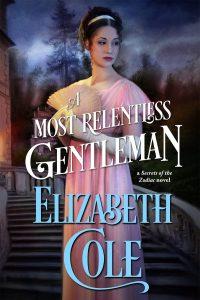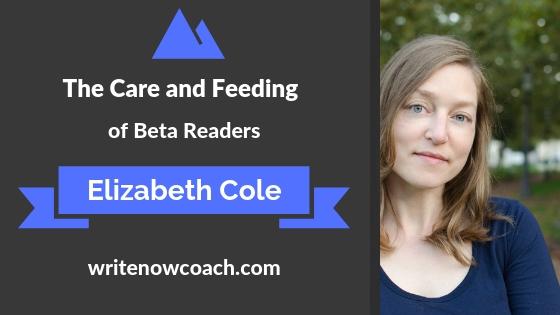The Care and Feeding of Beta Readers
November 20, 2018
Note From Rochelle
Dear Writers,
 Each week, I host Dream Keepers, a writing workshop for children and teens at the Milwaukee Public Library. I love how collaborative the students are. They work diligently on their own projects and they regularly ask each other for ideas and feedback. I always leave these sessions feeling refreshed and excited to write more!
Each week, I host Dream Keepers, a writing workshop for children and teens at the Milwaukee Public Library. I love how collaborative the students are. They work diligently on their own projects and they regularly ask each other for ideas and feedback. I always leave these sessions feeling refreshed and excited to write more!
If you’d like to have more connection with other people who write, think about attending one of my write-ins. We have two more scheduled for this year: tonight and next Tuesday. We meet online, check in with each other, learn a bit, and then get to work. If you’re interested in joining us, check out the details at my website.
 Today I’m delighted to welcome Elizabeth Cole, author of several romance novels. I’m currently reading A Reckless Soul, the second in her popular Secrets of the Zodiac series. The newest book in the series, A Most Relentless Gentleman, comes out December 11. She’s here to talk about beta readers.
Today I’m delighted to welcome Elizabeth Cole, author of several romance novels. I’m currently reading A Reckless Soul, the second in her popular Secrets of the Zodiac series. The newest book in the series, A Most Relentless Gentleman, comes out December 11. She’s here to talk about beta readers.
Enjoy!
Rochelle

The Care and Feeding of Beta Readers
by Elizabeth Cole
Writing a novel seems solitary, but every author works with others to edit and refine the text. One important step is the beta read.
What is a Beta Reader?
Beta readers play a very different role from critique partners, editors, or reviewers. A beta reader typically reads the draft after it’s complete, but before an editor takes a closer look.
A beta reader’s job is to respond to the story as a reader. When I send a fiction manuscript to a beta reader, I want to know if the story flows well, if it’s exciting where it should be exciting, emotional where it should be emotional, if all the plot points make sense. For a nonfiction book, you’d want to know if the beta reader thinks the subject was covered well, or if something was confusing. Basically, beta readers tell you about the experience of reading the book, and if any problems showed up.
What should you expect from your beta readers?
Unlike editors and proofreaders, beta readers are not usually paid. The compensation is early access to a book by an author you’re eager to read. Therefore, it’s not part of their job to look for typos or provide highly detailed feedback scene by scene. Yes, some beta readers do note typos and include a list of what they notice, but that’s just a nice bonus.
How do authors find beta readers?
It all depends. I’ve built up a reliable list of beta readers who are fellow romance authors and readers, who I’ve met in writing groups or at conferences. If you write literary fiction, you might want to ask someone from your MFA program, or someone from a local writing group. Are you a professional writing a nonfiction book about your subject of expertise? Ask a trusted colleague to read it and offer their thoughts. The most important thing is to make sure your beta readers will offer honest feedback, while being aware of your publishing objectives. (Don’t ask your poetry professor to judge the accuracy of the science in your space opera…unless your poetry professor happens to be a big fan of space opera!)
What’s the process for beta reading?
It’s pretty simple. When you’ve completed your draft, you send each beta reader a file of the book. You can also include a set of questions if there are some particular issues you want feedback on—or leave it open to get spontaneous thoughts. Set a date for a response (2 to 4 weeks is usually good for most projects).
State how you want readers to give their responses. Some writers like to see comments directly in the manuscript file. Some just like an email or message with general feedback. For fiction, you might ask about the main character’s motivation, or a plot twist. For non-fiction, you might ask what the reader learned about the book’s topic, or if they feel like they could now explain it to others.
One more thing: be very clear about privacy. I always remind my beta readers that they are reading an unpublished draft that will undergo a lot of changes before it’s done. Therefore, it is NOT ok to post the file anywhere. It’s not ok to talk about it in detail publicly. It’s not ok to post spoilers, or write a review. If you’re not sure you trust a beta reader to abide by these simple rules, don’t ask them to beta read.
What happens if something goes wrong?
In an ideal world, you’ll send out your manuscript and your questions, and your beta readers will promptly deliver you their thoughtful response.
This is not an ideal world.
What should you do if a beta reader hates your book, or if they give you a lot of harsh criticism, or tell you the book should be written a different way? First, take a deep breath. Not everyone likes every book. Readers are often quite good at identifying when something isn’t working. They are rarely great at proposing the correct solution. If you hear the same type of comment from multiple beta readers, then it’s probably worth looking at that part of the book more closely. But if the comment is an outlier, or feels out of step with your own sense of the book, it may very well be irrelevant. Never forget that you are the author and you decide what your book should be.
What if a beta reader never responds at all?
This happens! People are busy, they overcommit, and sometimes they just don’t want to read. I never prod my beta readers beyond a single reminder near the due date. If I don’t hear from them at all, then I simply note that down and I won’t send a future manuscript to them. If it’s a normally responsive reader who’s just having a busy time, I make a note to not worry about it. Over time, you’ll discover who the reliable beta readers are. You’ll learn who’s great at pointing out things like pacing or tone, and who is fast to respond but maybe doesn’t provide a lot of detail.
How should authors thank beta readers?
Frequently and sincerely! Always thank each reader, and be gracious. They are doing you the favor of reading your book when they could be watching Netflix. So read their comments with an open mind, and decide how you might incorporate their feedback into your revisions.
Developing relationships with reliable beta readers takes time, but it’s a very useful and informative step for all types of writers. Your book will be stronger when you make beta reading part of the process.
 About the Author Elizabeth Cole is a historical romance author. Her new book is A Most Relentless Gentleman, a regency romance chock full of spies, secrets, and yes, sex. Lady Genevieve strikes a bargain with her most hated enemy to get her greatest wish. The catch? He happens to be her husband. Go to her website to find out where to preorder the ebook, coming out December 11th. To get updates and access to secrets and giveaways, join the Cole Hearted Cadre, her Facebook group.
About the Author Elizabeth Cole is a historical romance author. Her new book is A Most Relentless Gentleman, a regency romance chock full of spies, secrets, and yes, sex. Lady Genevieve strikes a bargain with her most hated enemy to get her greatest wish. The catch? He happens to be her husband. Go to her website to find out where to preorder the ebook, coming out December 11th. To get updates and access to secrets and giveaways, join the Cole Hearted Cadre, her Facebook group.









Thanks for clarifying what a beta reader does. It also gives me an idea for following up with reviewers!